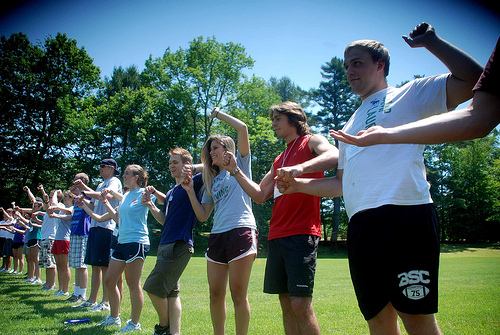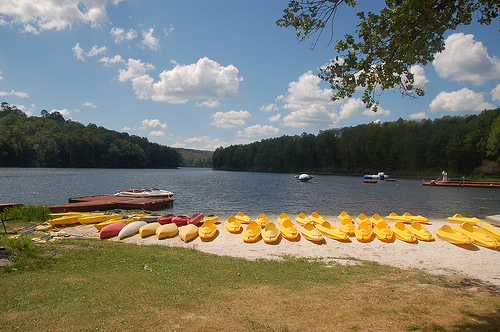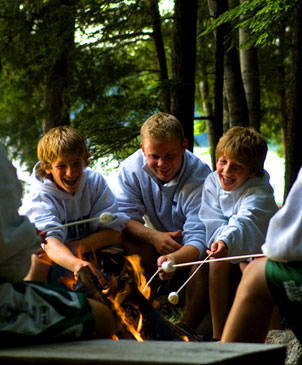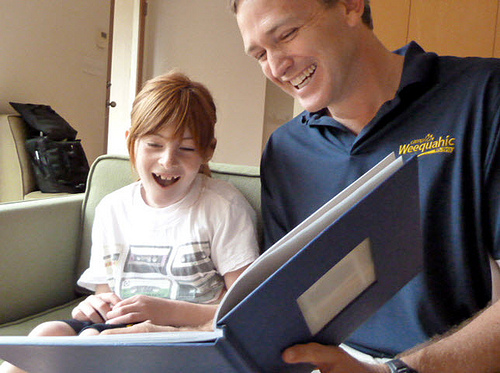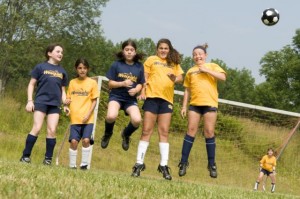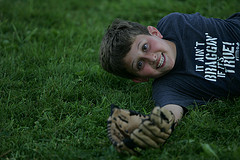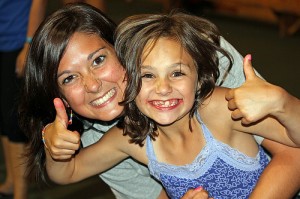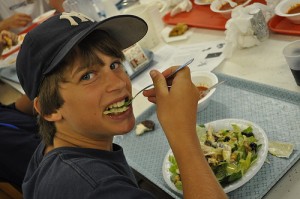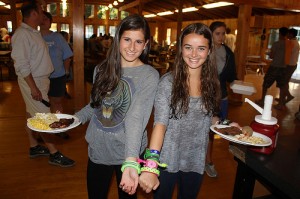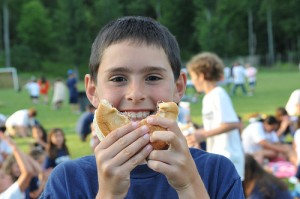 Spring is just around the corner and summer will be here before you know it, which makes now the time to start thinking about how you’re going to spend your summer. If you’re a college student, you could toil away as a server or cook at the local pizza joint or operate rides or peddle souvenirs at the local amusement or sports park. Interning in an office may even be an option you’re considering. And we all know the internships at Wall Street banks are now fewer and far between. But if you want summer employment that promises a summer full of fun and adventure while also helping you develop valuable lifelong skills that employers view favorably, consider working at summer camp. Just because your college days are behind you doesn’t mean that there isn’t a role at summer camp for you too, particularly if you are a teacher or high school or college athletics coach looking for a great way to supplement your income. In fact, the ages and backgrounds of the people who make up the typical summer camp staff are about as diverse as summer camps themselves.
Spring is just around the corner and summer will be here before you know it, which makes now the time to start thinking about how you’re going to spend your summer. If you’re a college student, you could toil away as a server or cook at the local pizza joint or operate rides or peddle souvenirs at the local amusement or sports park. Interning in an office may even be an option you’re considering. And we all know the internships at Wall Street banks are now fewer and far between. But if you want summer employment that promises a summer full of fun and adventure while also helping you develop valuable lifelong skills that employers view favorably, consider working at summer camp. Just because your college days are behind you doesn’t mean that there isn’t a role at summer camp for you too, particularly if you are a teacher or high school or college athletics coach looking for a great way to supplement your income. In fact, the ages and backgrounds of the people who make up the typical summer camp staff are about as diverse as summer camps themselves.
If you don’t think being a counselor is really your thing or you’re pretty sure you’ve aged out of that option, don’t sweat it. There are a multitude of positions besides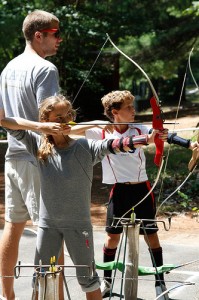 counselors that summer camps must fill each summer. For starters, camps have offices and offices require personnel to run them. If answering the phone and administrative tasks are more to your liking, perhaps working in a summer camp office might be the ideal option for you. Additionally, camps need people to help with daily scheduling as well as planning and executing special activities during the evenings and on special days.
counselors that summer camps must fill each summer. For starters, camps have offices and offices require personnel to run them. If answering the phone and administrative tasks are more to your liking, perhaps working in a summer camp office might be the ideal option for you. Additionally, camps need people to help with daily scheduling as well as planning and executing special activities during the evenings and on special days.
If you like the idea of spending time with children but are an athlete or hobbyist who would rather focus on your passion, summer camps hire specialists to teach skills in specific sports and hobbies to campers. If your passion is photography or videography, as the camp photographer responsible for capturing the fun every day, your role is one of the most integral at camp. In fact, if you can think of an activity, there is probably a staffing need for it at camp, and sometimes some of the hardest positions to fill are ones most people just don’t think of when they think of summer camp, such as creative writing, cooking, robotics, eco science, skateboarding, or magic.
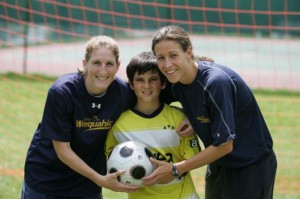 Although most hospitality positions such as food service, maintenance, and housekeeping are usually filled with international applicants, some camps hire domestic applicants as well, particularly for supervisory roles in these areas. If you are an international student who would love to earn some money by working in the U.S. before or after traveling, one of these summer camp roles may be the perfect option for you…as well as a lot of fun and a chance to make a lot of new friends from around the world!
Although most hospitality positions such as food service, maintenance, and housekeeping are usually filled with international applicants, some camps hire domestic applicants as well, particularly for supervisory roles in these areas. If you are an international student who would love to earn some money by working in the U.S. before or after traveling, one of these summer camp roles may be the perfect option for you…as well as a lot of fun and a chance to make a lot of new friends from around the world!
Camps also have a need to fill key roles that require more foundational knowledge and experience. Aside from campers, camps also need division heads or campus leaders, people who lead a specific age group and supervise all of the counselors within that group. Although many camps fill all or most of their head roles from within, using individuals who have several years of successful camp experience because they require a more intricate knowledge of summer camp, occasionally they will search outside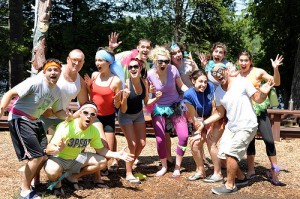 of camp, typically for teachers or other professionals who work with children. Camps also hire program or activity heads, usually college coaches and current or former professionals in their area of expertise, such as soccer, baseball, basketball, gymnastics, etc. However, since almost all activities require people to run them, those with interest and expertise in hobby or arts related programs can often find a summer home at camp in areas such as arts and crafts, dance, theater, etc. Those who manage offices, act as campus administrators, or arrange transportation are typically individuals with some type of related work experience as well. Most camps also employ camp moms or parent liaisons during the summer. These are individuals, often mothers themselves, who monitor the well being of younger campers to insure they are eating properly, staying well groomed, and having a fantastic summer.
of camp, typically for teachers or other professionals who work with children. Camps also hire program or activity heads, usually college coaches and current or former professionals in their area of expertise, such as soccer, baseball, basketball, gymnastics, etc. However, since almost all activities require people to run them, those with interest and expertise in hobby or arts related programs can often find a summer home at camp in areas such as arts and crafts, dance, theater, etc. Those who manage offices, act as campus administrators, or arrange transportation are typically individuals with some type of related work experience as well. Most camps also employ camp moms or parent liaisons during the summer. These are individuals, often mothers themselves, who monitor the well being of younger campers to insure they are eating properly, staying well groomed, and having a fantastic summer.
So who works at camp? Chances are someone like you! If you’d like a summer job in which you can work among a diverse group of people from all over the world, make lifetime friends, be challenged everyday, and have the time of your life, apply now to one of America’s Finest Summer Camps!
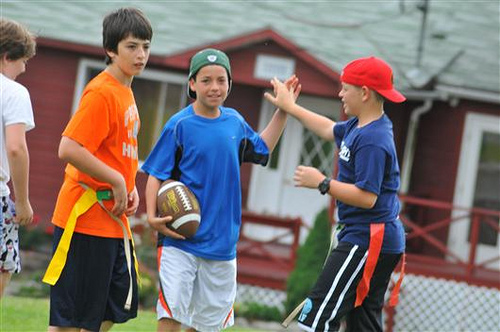 Whether your family lives in a large city or a small town, there is likely not a shortage of organized sports for children. Increasingly, the emphasis of team sports is less about what it means to be a member of a team and more about being the MVP of a winning team. As a result, child athletes are often caught between sparring parents on one sideline and anxious, screaming coaches on the other. Overly zealous parents and coaches seldom stop to consider that children often absorb their parents’ feelings and may project the resulting tension through their play. The immense pressure to be a star who constantly wins is often why many children become burnt-out in the competitive sports environment and choose to take a break or even quit altogether. Says Fred Engh, author of Why Johnny Hates Sports, “If all the focus is on winning, kids may be scared to fail and make mistakes. Mistakes are part of the learning process and it’s how one improves.” One of the most undervalued benefits of team sports at traditional American summer camps is the environment that allows children to make mistakes without fear of backlash from the sidelines and to process those mistakes in a way that they can turn them into learning experiences.
Whether your family lives in a large city or a small town, there is likely not a shortage of organized sports for children. Increasingly, the emphasis of team sports is less about what it means to be a member of a team and more about being the MVP of a winning team. As a result, child athletes are often caught between sparring parents on one sideline and anxious, screaming coaches on the other. Overly zealous parents and coaches seldom stop to consider that children often absorb their parents’ feelings and may project the resulting tension through their play. The immense pressure to be a star who constantly wins is often why many children become burnt-out in the competitive sports environment and choose to take a break or even quit altogether. Says Fred Engh, author of Why Johnny Hates Sports, “If all the focus is on winning, kids may be scared to fail and make mistakes. Mistakes are part of the learning process and it’s how one improves.” One of the most undervalued benefits of team sports at traditional American summer camps is the environment that allows children to make mistakes without fear of backlash from the sidelines and to process those mistakes in a way that they can turn them into learning experiences. self-conscious are particularly challenged by situations in which tension runs high. The spirit of camp is one of instruction, fun and safety more than competition. It’s about making children feel like a valuable part of a unit that utilizes everyone’s talents in a way that is beneficial. In short, the traditional summer camp environment is a team environment. At camp, children have the encouragement of their counselors and fellow campers when playing sports. A child making a layup shot on the basketball court for the first time is cheered just as much as someone scoring a winning three pointer.
self-conscious are particularly challenged by situations in which tension runs high. The spirit of camp is one of instruction, fun and safety more than competition. It’s about making children feel like a valuable part of a unit that utilizes everyone’s talents in a way that is beneficial. In short, the traditional summer camp environment is a team environment. At camp, children have the encouragement of their counselors and fellow campers when playing sports. A child making a layup shot on the basketball court for the first time is cheered just as much as someone scoring a winning three pointer.
 570-798-9831
570-798-9831


